
Zoos are an often contentious part of the responsible wildlife tourism debate, with those who are against all animal captivity on one side and those who believe responsible zoos play an important part in conservation on the other. I’m going to argue that despite claims to the contrary, zoos are an integral link in the conservation chain and should be part of any responsible tourism itinerary.
Wildlife tourism is big business within the travel industry, and zoos have played an integral part of that since the late 17th Century, far longer than that if you include their earlier incarnations as simple menageries. Yet in recent years zoos have found it difficult to justify themselves in an era of increasing responsible tourism and animal conservation, especially in the growing understanding and popularity of seeing wildlife ‘in their natural habitat’, a tourism ‘trope’ which itself has many nuanced implications and can cause as much harm as people accuse zoo’s of.
I’m just going to come out and say it, I love zoos. I do. A lot of people may be surprised at that statement given my vocal support for wildlife conservation, but that is often because many people misunderstand the vital role zoos play and fall into the trap of labelling all zoos as harmful, which just is not the case at all. It is precisely because I am passionate about wildlife conservation that I do have this love for zoos, and try to visit as many of them as I can whenever I travel.

Are All Zoo’s Just Abusive Animal Prisons?
To some, zoos can never be responsible and fall under the very large ‘unethical captive animal’ umbrella. This extreme stance does not condone any type of captivity at all and argues that all animals should be free in the wildnerness at all times. The Born Free Foundation is one such organisation and argues that zoos can never be ethical or responsible.
“Born Free believes such confinement and exploitation should be a thing of the past. The Zoo Check programme is at the heart of Born Free, and since 1984 has worked to prevent captive animal suffering and phase out zoos.” Born Free Foundation.
It is not as simple or as black and white as that however. As is the case with most extreme views a lot of fundamental facts and questions are ignored and dismissed out of hand and the fact is the truth is much more nuanced than that. On the whole I don’t disagree with their motives in wanting to protect animals and fight for their conservation rights, but I find it hard to agree with such a hardline stance. What about the conservation efforts zoos contribute to? Would conservation and breeding programmes even exist without the money and funding provided from the tourism sector? Where will all the animals go exactly? Where is this huge continent of land that will allow all species to roam free and safe from hunters, poachers and various habitat destroying induistries?
These questions all tend to be met with a mumbled silence from those who dismiss zoos out of hand.
The truth is that with some obvious exceptions, not all captive animal facilities are negative. Zoos are not all ‘a thing of the past’, and can in fact be a very important part of the future of conservation.
Of course there are bad examples of zoos out there. Zoos that are there simply to exploit the animals for profit with little or no care for their welfare or for conservation efforts, and where zoos like this exist they do deserve to be shut down and those involved prosecuted to the full extent of the law. My lawyers have advised me not to say what I would really like done to them.
Not all are like that however. In fact most aren’t.
Now when I visit zoos on my own travels, I don’t always get it right. I try and do as much research as I can beforehand of course, but it isn’t always possible to know exactly what a zoo will be like before you get there and unfortunately I have seen many examples of bad zoos. Fortunately however I have seen many, many more amazing ones too, and it is these facilities that I love visiting and supporting with my hard earned money.
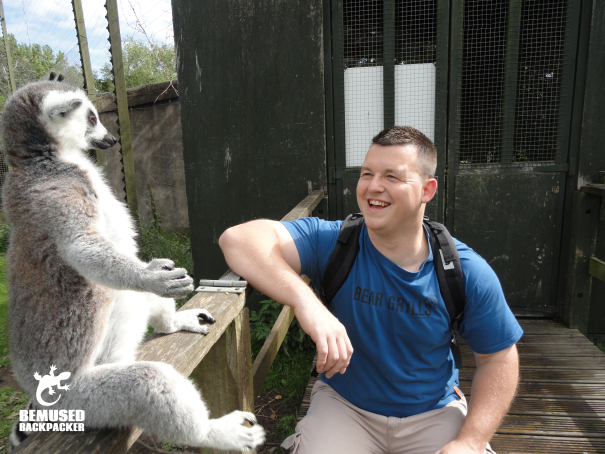
“It was this big, Guv, honest!”
Shouldn’t Animals Be Roaming Free?
It is certainly a noble ideal isn’t it?
I am a strong and vociferous advocate for animal welfare and responsible wildlife tourism, and despite my strong support for zoos I do also have a natural affinity with their opponents who do not agree with animals being kept in captivity at all. I just don’t completely agree with their conclusions.
In part I can see some of their points, to an extent, I mean who can really argue with a general statement that animals should be left to roam free in a natural environment away from human interaction, or at the very least with very limited human interaction?
It would be an absolute dream to know that every wild animal everywhere is living in vast, open wilderness, left alone by mankind to live their best lives, and they were all happy, content and safe. If I could wave a magic wand and have that happen right now I would do it. But it isn’t going to happen, is it? It isn’t realistic, is it?
No one is arguing that open, protected spaces with minimal human interaction for the animals in that area isn’t one ideal, me least of all. There should be areas of the world where animals are left alone in the wild to fend for themselves. But who will pay for that? Who will pay for the upkeep of that and ensure that human greed isn’t tempted by other industries that seek to use wildlife habitats for other means, like logging or palm oil plantations?
There is of course alternatives to zoos that provide a half way answer between these two extremes. Over the last decade there has been an explosion in conservation camps, rehabilitation centres and other forms of wildlife tourism that aren’t zoos, but are still effectively ‘captive’ facilities.
It is important to remember though that simply saying ‘conservation camp’ isn’t an easy answer to any rebuttal to a hardline ‘all zoos are bad’ stance. The fact is there are as many bad and greenwashed conservation camps and rehab centres as there are bad zoos, and again, the animals there aren’t completely free either, so should all conservation camps be abolished under the no captivity argument?
Conservation camps, rehabilitation centres and open spaces are not ‘responsible alternatives’ to zoos, but are instead responsible partners. Both are needed side by side to work toward wildlife conservation.
Room For All Types Of Tourism.
The fact is there is an absolute need for zoos, and for other alternatives such as conservation camps and rehabilitation centres too. There will for the foreseeable future be a need for animals who can never return to the wild to have a home, in some cases zoos are the right place, in others it will be the staged rehabilitation centre where the animals can live in a semi wild state, still funded by ethical tourism but with room for some to be rewilded. Others still can allow tourism to fund vast protected strips of land where wild animals can roam free and be viewed from a responsible distance. Responsible tourism of all kinds and at all levels, from zoos right up to viewing wild animals on a safari have a place.
At the end of the day it is the estimated but still vast $600 billion revenue worldwide – according to figures from Dr Robin Naidoo of the WWF – that facilities like these bring in that helps fund conservation efforts, and should prove that responsible tourism is far more profitable that traditional tourism.
In fact I would argue that both zoos and other responsible wildlife tourism facilities can – and should – exist side by side for the overall positive effect on animal conservation and care.
I would argue zoos are a vital link in the conservation chain, a link that cannot be removed without breaking the chain itself.
All of these options should exist side by side, all working together to improve the conservation status of all species. Arguing that zoos should not exist in favour of more open alternatives is wrong, and completely ignores all the positive things that zoos actually do both within the tourism industry and also in terms of wildlife conservation and preservation.
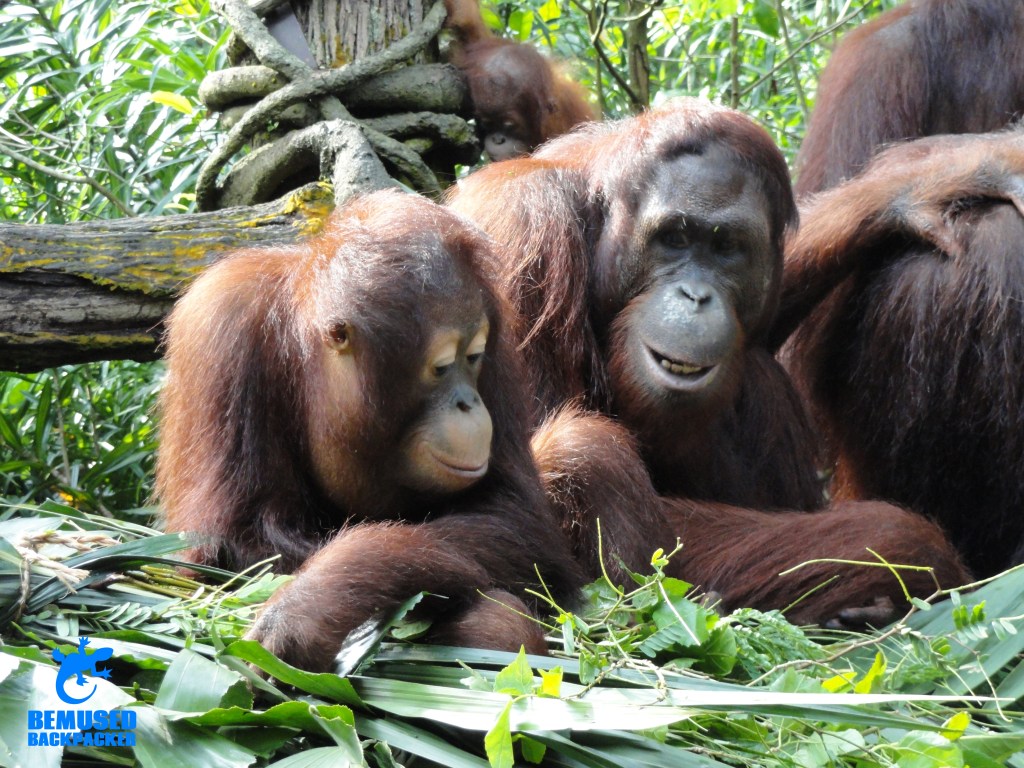
What Good Do Zoos Do?
Good zoos, and I do make that definition because there are of course bad examples out there that should rightly be shut down, generally abide by the rules and regulations set down by international bodies such as the Association Of Zoos And Aquariums, as well as holding themselves to account from various wildlife charities and groups as well as local and international animal welfare legislation.
Zoos have now evolved far beyond the Victorian menagerie they once were. They are no longer simple sideshows were animals are kept in cages for a visitors amusement.
The modern zoo now focuses predominantly on research, education and conservation, and plays a vital role in each of these key areas and more.
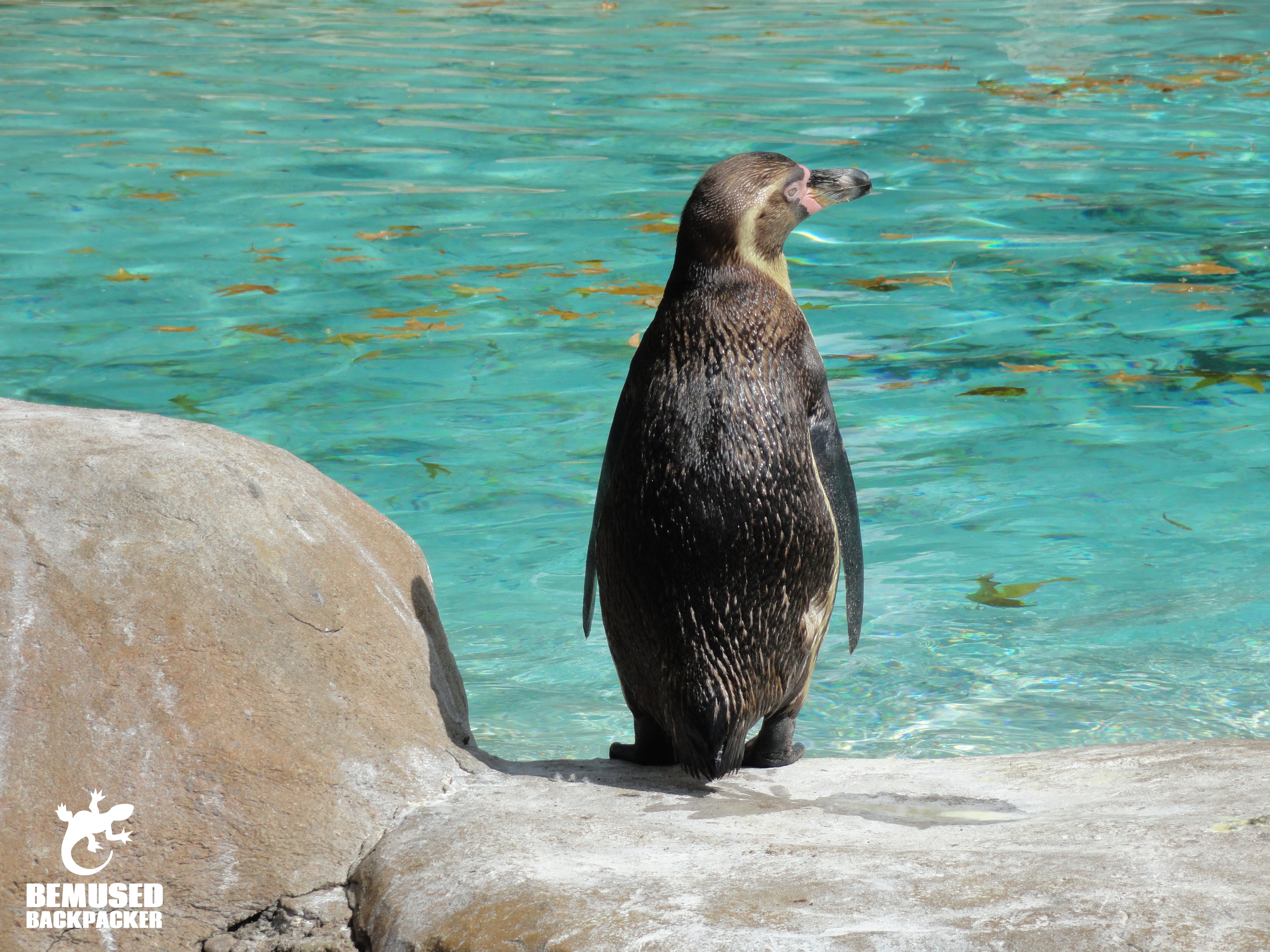
Education.
Zoos have for a long time been family orientated places that bring in vast numbers of visitors every single year, and good zoos can have a profound influence on visitors through interactive exhibits and active educational programmes. Zoos do not simply serve as entertainment to the public, but as a socialising agent by educating their visitors about the species themselves and the conservation issues surrounding them.
Zoos are unique in this regard because in the Western world, they give a much deeper connection to conservation than any book, classroom or documentary ever can. They can provide a face to face experience with wildlife that shows a deep commitment to animal welfare and conservation. This influence can not only educate and highlight the plight of many species as well as the conservation efforts needed, but give people a reason to care about it too.
In general terms, human beings require a connection to something to care about it. It isn’t enough to have a vague abstract concept of a thing in a distant land somewhere, and numerous studies from academic institutions as well as organisations such as the Association of Zoos and Aquariums or National Geographic among others have found time and again that zoos provide that natural connection. They argue that visitors to zoos gain a deeper understanding of and connection to nature and wildlife as a result of their visit, and reconsider their roles in conservation. In short, once visitors see animals in zoos personally, they gain a deeper connection to them and see themselves as part of the conservation solution. They see the animals and want to help.
Conservation.
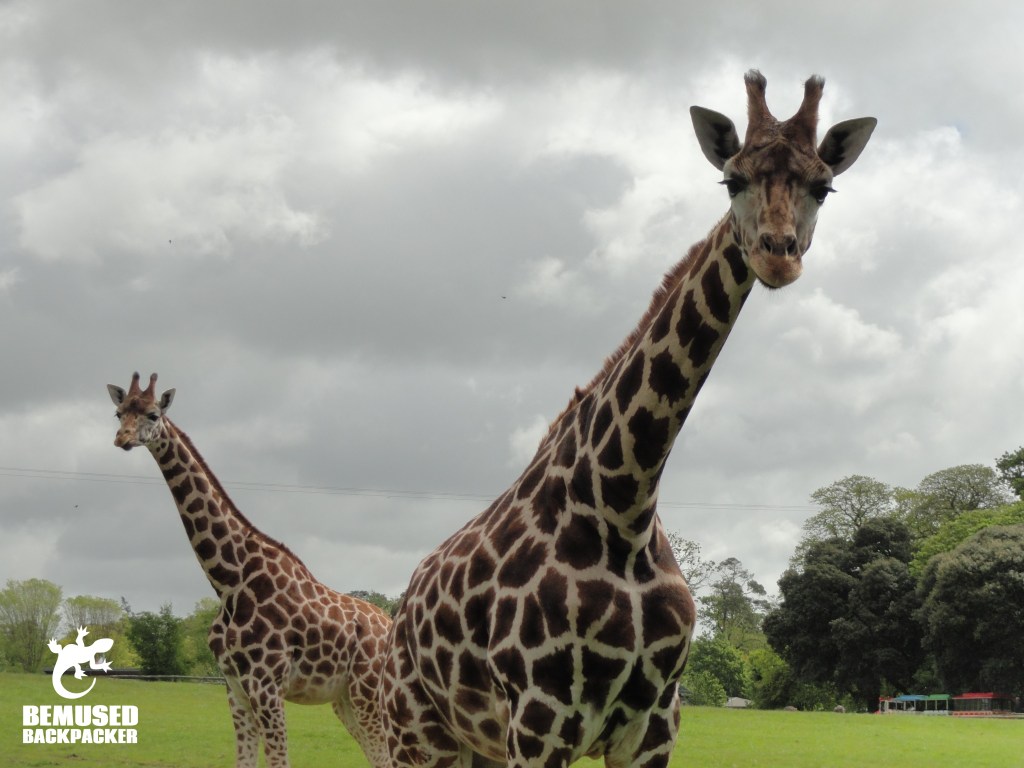
Many zoos around the world also contribute heavily to a wide variety of conservation initiatives including habitat conservation, breeding programmes reintroduction programmes, research and information dissemination.
In fact I would go as far to say that most average visitors have very little idea of the sheer amount of conservation work zoos do, and I wish many would shout about their accomplishments a lot louder.
Often working alongside other academic institutions and wildlife organisations, zoos contribute heavily to numerous academic and scientific advancements in fields such as evolutionary ecology, evolutionary genetics, wildlife diseases, reproduction biology and reproduction management.
The Leibniz Institute for Zoo and Wildlife Research in Berlin, is a significant research facility of the World Association of Zoos and Aquariums which aims to not only understand why and how wildlife populations are threatened by modern society, but also how best to assist species natural adaptation and survival in the wild in the face of anthropomorphic change. Basically speaking they are looking into saving wildlife and their habitats from us.
Providing A Home.
Zoos provide a vital resource to conservation efforts by providing a home for animals that have been rescued from the wild and need caring for, or homes for those animals that have been born in captivity and will never be able to return to the wild.
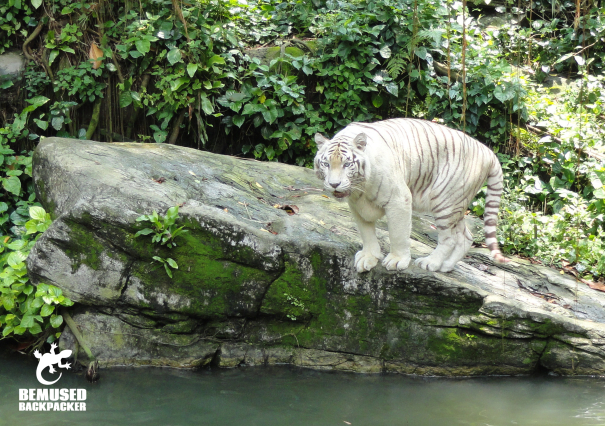
Organisations such as Born Free argue that these initiatives do little to help the conservation or the long term survival of the species, stating the fact that there have been very few reintroduction programmes of captive born wildlife that have been successful, for certain species anyway. But there is evidence to the contrary and proof that they suggest they are missing a lot of vital points. Those less charitable may consider that last part willful.
The Association of Zoos and Aquariums argue that reintroduction programmes are vital in stabilizing, re-establishing, or increasing in situ animal populations that have suffered significant declines, and have provided a list of species that have benefited from successful programmes in the past.
Homing the animals in their specific natural habitats in the wild and enabling them to survive and flourish themselves is just one way zoos provide vital resources to the conservation efforts.
That is why there is a place for zoos alongside other alternatives such as true rehabilitation centres where wildlife is assisted only as much as is necessary and some at least are reintroduced fully back into the wild using a staging system.
Successful rehabilitation programmes are not easy however, and do not rely solely on reintroducing a captive born animal directly into the wild. There are a variety of stages and initiatives that will lead from captive born (or kept) animals being introduced to a semi wild state, supported until they can fend for themselves )if ever) and hopefully eventually lead to a growing population of wild born and raised animals. This orang utan rehabilitation centre in Sarawak in Borneo is an excellent example of that.
The truth however is that not all animals will be able to survive in the wild, and they will need to be housed somewhere. Zoos are one answer, sanctuaries and parks are another. Unfortunately opponents of wildlife captivity do not provide any solution of what to do with those animals if there was nowhere to keep them.
If there were no zoos at all, where would these animals go exactly?
Those that cannot ever be fully released into the wild, including captive born or rescued animals, can be cared for in facilities like good, ethical zoos that still fulfill a strong conservation role.
Public Opinion.
Zoos also play a vital role in swaying public opinion toward supporting animal welfare and conservation issues.
Bad zoos that have inadequate facilities and do not meet any international standards for animal welfare or environment standards can promote negative views toward conservation issues by promoting a sense of apathy and normalisation amongst the public who come to see the animals. By allowing the public to see dangerous or inhumane conditions as normal, it simply reinforces the message that this is okay, and conservation issues are stalled before they even start. In that respect I am in complete agreement that these zoos should without doubt be shut down.
On the other hand, by acting as a positive reinforcing agent, good zoos can show the general public how things should be done, and act as a thought leader in not only swaying public opinion to supporting animal welfare and conservation issues, but also by leading by example and showing others how it should be done.
By making themselves positive role models and changing public opinion, good, ethical zoos can raise the bar for all zoos and wildlife attractions. Public opinion, when swayed in the right way, can force bad zoos to change their ways or close. It can force conservation issues to the forefront of public conciousness, and that is a direct role zoos can play in the conservation fight.
Survival.
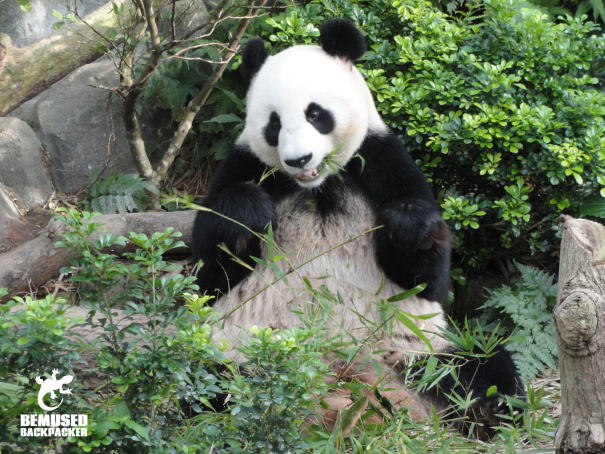
It is a simple fact that without zoos, many species would now be extinct.
Responsible zoos also play a significant role in international species survival plans. These are breeding programmes that are held up to international standards and scientific cooperation that ensure the survival of many species.
It is unfortunately not an exaggeration to say that many species still alive today are so because of these programmes, and other species who are on the brink of extinction in the wild are being assisted by them.
It is unfortunately necessary to breed many species in captivity, such as rhinos, tigers and pandas as just a few examples, simply to keep the species alive. Often due to the fact that the species may have very little or no natural habitat left thanks to their human neighbours, or their natural habitat is simply not safe due to hunting, deforestation or any number of reasons.
“Protecting rhinos in the wild can be very challenging and uncertain. Hence, viable populations in captivity are also important as ultimate reservoirs of genetic and demographic material for reinforcement or re-establishment of wild populations as need and opportunity occur. When populations get so low like the Sumatran rhino it is important to have an insurance population in captivity and carry out breeding programmes”. Save The Rhino Foundation.
So if there were no captive breeding programmes, would many species still even exist?

This shouldn’t in any way be confused with the ‘programmes’ that are touted by facilities such as the Tiger Temple in Thailand, which do not hold to any international standards and instead breed tigers illegally, contribute to illegal wildlife trafficking and breed simply to fill a profit driven need.
Thankfully responsible zoos take part in international programmes that are vastly different.
It isn’t a perfect solution by any stretch of the imagination, and I do not completely disagree with many groups such as born free that state it is better for wildlife to be born, raised and thrive in the wild, of course it is. In an ideal world there would be enough protected land for every species to do just that and mankind would be forced to reign in their greed and destructive urges to protect that land and the species living on it. But at the moment given the lack of an alternative for many species, it is a solution, and one that should be supported until other alternatives have been put in place.
But Captivity Isn’t Right For Every Animal All Of The Time.
Saying all this, there are without doubt examples where captivity is clearly wrong. And this is where a lot of the issues become a grey area.
A zoo is a term that is unfortunately also used by a variety of small roadside attractions that keep animals in small cages and use them as photo props or entertainment for tourists. It can also be used as a term to describe facilities that are clearly not in the animals best interests and are there simply to exploit animals for profit.
The Tiger Temple In Thailand is a clear example of how bad captive wildlife facilities can get. This is a facility that has been investigated by authorities and international animal welfare groups for years now, and has been shown time and time again to be abusing the tigers and actively working against international conservation efforts. It is an absolute disgrace that the authorities haven’t shut it down despite numerous chances.
Captive cetacean shows are another example where captivity does far more harm than good. Housing animals in as ethical a way as possible in a way that benefits conservation efforts is one thing, keeping them in tanks that are inadequate enough to cause harm and simply exploit them for profit is another.
This is especially true when it is still the case that these species are still captured en masse for the sole purpose of placing them in exploitative entertainment shows in the travel industry, and that is wholly wrong. That is why Richard Branson through his Virgin Holidays company has declined to support any organisation that continues to take cetaceans from the sea. As for those already in captivity, it is not an easy debate by any means, but no facility that uses them in exploitative shows, or allows unethical dolphin swimming programmes or any such activity can ever be supported or described as ethical or responsible.
The captive cetacean facilities would do well to model themselves much more on the good zoos, get rid of all animal shows and activities where the general public can jump in a pool and hug a dolphin or get pushed out of the water on the tip of the dolphins nose. Have larger ocean based pens, not ridiculously small ‘pools’ and allow viewing from a distance or via underground domes of those cetaceans born in captivity.
Where there is a clear and distinct conservation and education role in keeping animals in good zoos, no such roles exist in the case of dolphin or whale shows that are the norm in facilities that house them.
In this case, as the Whale and Dolphin Conservation Society argues, there are much, much better alternatives to seeing dolphins and whales, and responsible and ethical companies that promote viewing them in the wild from a distance are providing those alternatives.
This is the difference between a good zoo and captive wildlife facilities that are only there to exploit wildlife.
And then of course there are the bad zoos too. Zoos that do not conform to international standards of welfare, and pay lip service only to the vast conservation works that are funded and undertaken by good, ethical zoos.
These bad zoos are no different in my opinion than the Tiger Temple or captive cetacean facilities or in fact any facility or organisation that exploits and harms wildlife simply for profit. I understand that with the sheer level of greenwashing that goes on it can be difficult to tell the difference sometimes, but there is a clear difference.
Critics of zoos often site these examples when arguing their case against animals in captivity, but they are not the same. Arguing they are is simplifying a very complex issue.
So let it be clear, when good zoos are used as an example of responsible wildlife tourism and ethical wildlife captivity, these bad examples are not included in that.
All Zoos Are Not Created Equal.
As I have said repeatedly not all zoos are positive examples of conservation and wildlife protection however and I will be the first to admit that there are bad zoos out there. Remnants of a time long past were animals are kept in inadequate enclosures, poor conditions and are used for exploitation and profit. Even good zoos don’t get it right all of the time, I was very against London Zoo’s quite frankly moronic and disrespectful ‘Zoo Lates’ drinking parties for example and there are still times where profit overrules good sense and animal welfare.
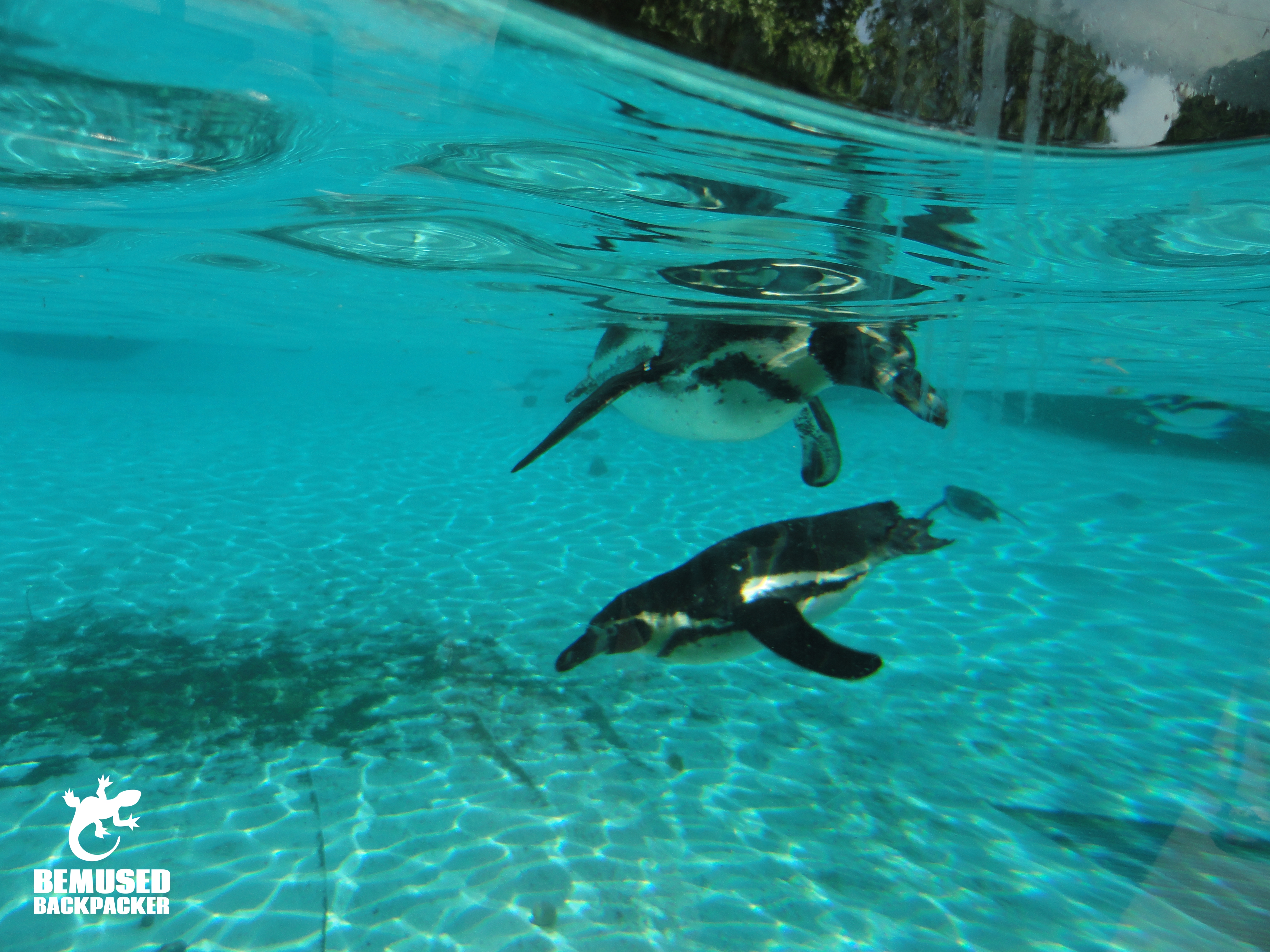
Where bad zoos exist I have no hesitation in calling for their immediate improvement or shutdown, where bad practices start to creep in, I am likewise just as vocal in calling for them to be scrapped.
Where facilities exist solely for the exploitation of wildlife and harm, abuse and mistreat them simply for profit, I will never agree to that and will happily campaign against them.
But if I can campaign for good zoos and state that bad ones do exist, surely those who say that all zoos should be closed can see that there are good ones too?
How To Tell The Difference Between A Responsible Zoo And An Irresponsible One.
It isn’t always easy to tell the difference, especially if you have been going to zoos all your life and you have been exposed to certain practices like animal shows, or the relentless greenwashing that is normal behaviour now. Greenwashing – the practice of making something appear eco or responsible when it is not, is commonplace and not always easy to see through.
The good news is that there are resources you can use to help you make your decision. The Association of Zoos and Aquariums is a good place to start, but the fact of the matter is you really do have to do your own research. The best way to do that is to ask yourself these key questions about the zoo you are about to visit.
- Are the enclosures humane? Are they sized appropriately for the animal and are they natural habitat style enclosures that promote wellbeing as opposed to mere cages?
- Are the animals treated well and looked after? Are they fed well and do they have enrichment programmes in situ to keep them occupied and in good mental and physical health?
- Does the zoo have a strong educational focus? If so how is it implemented?
- What conservation role does the zoo play? Does the zoo use profits to implement or support research, rescue and education projects?
These are just examples of questions you should ask to see if zoos practice what they preach and if they are genuinely good zoos. There are good examples out there that are more than worth supporting, and any one of these good zoos will be open to scrutiny such as this.
Zoos As A Force For Good.
Many zoos are not perfect, but on the whole they are a positive force for good and deserve their place on any responsible travellers itineraries. Good zoos are a vital link in the conservation chain. They provide endless enjoyment for travellers and tourists alike, provide good, safe and healthy environments for their animals and play essential roles in conservation and education.
Yes there are other alternatives for tourists to interact with wildlife in a responsible and ethical manner. Conservation camps, rehabilitation centres, rescue centres, all of these different groups have many examples of how wildlife can be protected, looked after and conserved in a responsible way, and in a great many cases how travellers can view or even interact with the wildlife in a positive and responsible manner.
But these alternatives aren’t always perfect either, and are certainly nowhere near as well funded or resourced as many zoos. The fact is as much as zoos are there for profit, they also fund a vast amount of conservation efforts and I can’t think of a better way for the tourism industry to give back than to provide a direct route for tourist dollars to provide an income for locals as well as a steady income for numerous conservation projects and research.
In that light, there is a role for all of these options when working towards wildlife conservation, and all of these options, zoos included, deserve their place in the context of responsible wildlife tourism.
So I urge all of you out there, do your research, look for good, ethical zoos with strong conservation practices and support them on your travels. Go and enjoy yourselves, have a good time and do your bit to support and contribute toward the welfare and conservation of many of the species you go to see.
Did you enjoy this article? I would love to hear your thoughts in the comments section below or on my Facebook or Twitter pages and please feel free to share it with any or all of the social media buttons. If you want to get more great backpacking tips, advice and inspiration, please subscribe to updates via email in the box to your right.
Related Articles.
A Photo For Facebook? You’ve Just ‘Liked’ Animal Abuse.
How Responsible Travel Is Boosting Welsh Tourism.
How To Volunteer With Wildlife On Your Gap Year.
Responsible Orang Utan Spotting In Semenggoh Wildlife Centre.
The Good And The Bad Of Elephant Tourism In Sri Lanka.





This is amazing! I love zoos and have ben going since I was a little girl. I knew on some level that they were doing good work but I couldn’t quite articulate it and I did have a bit of a moral dillemma with organisations like Born Free which say all captivity is bad. This makes so much sense, thank you for writing this.
Thank you Alice, I know what you mean it can be hard to balance out two differing paradigms on such important issues, especially when both aren’t necessarily wrong and both come from a place of good intentions. That’s why it’s important to get all the facts and not make a knee jerk choice on your own stance. Good on you for not doing that.
Obviously I have to agree with you that zoos can be good seeing as I volunteer at one! There are plenty of bad ones out there too though that I will never visit (cough, Copenhagen Zoo) which I think ruin it for those zoos that are actually trying to help wildlife and conservation.
I don’t think Zoo Lates were a bad thing though as it brought so much revenue into the zoo which all went to conservation around the world. It’s just a few stupid people that ended up making it a bad thing but the media didn’t help as half of what was reported didn’t actually happen anyway. Regardless, London Zoo has actually come pretty far since I used to visit when I was little and the enclosures were a lot smaller. Now the animals have tonnes of room and Whipsnade homes all the bigger animals as they have far more space.
I love visiting animals around the world and think zoos generally do a great jo. Singapore Zoo is definitely one of my favourites!
I agree zoos in general have improved immeasurably since we were kids, and continue to do so as well. That is partly why I cannot get behind the hardline and inflexible stance that all zoos are ‘animal prisons’. So many now have amazing open habitats and enrichment for the animals, London and Singapore are two great examples of that. I think in the future zoos like Singapore and London (and many more) are going to provide a model for all zoos to follow. I have to disagree on principle about the zoo lates though, I take the point about the money, that is one of the arguments used for zoos in general, but there is a line I think where zoos have to balance profit and business with reasonable, responsible and respectful options for tourists, and the zoo lates crosses that line for me. Zoos have to be really careful with that line. Thanks for commenting. 🙂
@Ayla :
I wouldn’t call Copenhagen a ”bad zoo” , I’ve actually visited it and it’s well decent and sometimes even very good (only ”bad” point would be the elephant exhibit which is definitely too small) . Copenhagen has a nice collections of some rarities we cannot find elsewhere in Europe (for ex. Copenhagen was until very recently one of the 3 holders of white-eared opossums in Europe , only Olomouc Zoo in Czech Republic has them now) .
Now I’m practically sure you’re talking about culling animals and dissecting them in front of a crowd , and tbh I’m not against that practice . Animals that were culled were ”nefast” (couldn’t find a decent term) individuals when it comes to gene(tic) pool and to avoid inbreeding Copenhagen well had no choice but culling them off . I do however agree that transferring the animals to other zoos or keeping them off-show for a short period would be a better idea but I don’t know the exact circumstances so I’ll not argue anymore about it
Great post, it’s nice to read about the good side of zoos for a change. I agree wholeheartedly by the way.
Thanks Paul I appreciate it. 🙂
I love zoos, they are a great way to teach my kids about conservation. Kids need to learn that animals deserve to be treated with respect too.
I agree. 🙂
Great read! I had taken a hard stance on not taking my kids to see zoos because I did think they werent responsible, but I also felt it was a shame because I would love to show them the animals and let them learn about them so I am glad you wrote this and made me think so that I could make an educated decision! Thank you!
Thank you for reading, I’m glad it had such a positive effect. 🙂
If conserving animals by keeping them in zoos for human entertainment is progress then the future is looking bleak.
Actually Chris I’d say the future of many species is looking a hell of a lot brighter because of zoos.
So we almost killed every species out in the wild and as a result we pat ourselves on the back for making zoos?
No, we are now turning zoos into a way to protect those species. It’s about turning zoos into a positive force that has a duty of care to the animals in their charge and a positive impact on the conservation of those species. Something which many moderns zoos do.
Zoos are animal prisons. Better to die in freedom than live in captivity.
So you’d rather see whole species die out then?
If we just left nature alone we wouldn’t have to ‘conserve’ species! We can learn more about animals in their natural environment, I would much rather pay my money to towards that!
So you want to leave nature alone, but then pay money to be one of a horde of tourists who crash through an animals ‘natural environment’ just to see them? I take the view of current best practice in wildlife tourism which is hands off and as far away as possible whenever possible, and if wildlife is truly wild in a natural habitat then I say tourists should not be there at all. There is room for distance safaris in limited areas, but only if it is as minimally intrusive as possible. And then your argument does not address the species that do not have a natural environment any more, or at least not enough of one, or the animals who can never be reintroduced into the wild.
People always say that we should return them to the wild, but the problem is….where is that ‘wild’?? Humans have taken over majority of their habitat and the least we can do is to dedicate a portion of ‘our’ habitat and help them rebuild their population that we destroyed. Yes, there are many zoos that are doing more harm than good but generalizing all zoos means the end for conservation and soon these animals will surely be gone. Our only option is to eliminate them or co-exist with them in the same territory.
I absolutely agree. Humans have caused so much destruction and zoos are a vital part of repairing that.
Certainly one of the best article when it comes to balancing pros and cons about captivity . I’m of course pro-captivity and I’m so tired of people generalizing and saying things like ”Zoos are animal prisons” without having a valid argument .
Great job ! ;D
Thank you Bryan, I can’t stand it when people shout slogans without any valid arguments either. It is not a black and white issue and needs a lot of discussion and thought.
Yes! Yes and YES!! I’ve always gotten really frustrated at everyone I have heard mindlessly repeating those ridiculous ‘all zoos are bad’ and ‘all animals should be free’ lines without knowing what they were talking about, but have never really known how to argue with it. Now I do and I will refer them all to this page! This is such a great post!
Thank you so much and glad to have helped! Hopefully next time you hear someone say that you can educate them a little! ;D
I love this! Why have I not read it sooner? I have never agreed with people who say all zoos should be shut down, they just don’t get it! I wish they would all read this post.
Exactly Anne, I do too! Thanks for the comment.
I love this post! Almost as much as I love zoos!
Well a good zoo always deserves to win out in the favourite stakes! ;D
I don’t agree with zoos exactly, but do see that some do sterling work in the protection of them, releasing back into the wild, conservation efforts etc.
That’s exactly my point Helen, are zoos an ideal answer? Maybe not, but they are certainly part of the solution for now.
A lot of money is needed to protect and conserve animals and unfortunately this involves zoos. Lets face it some of todays generation have no idea where animals of any sort actually come from or that they actually exist.
Very true.
Zoos have no place in the world today merely as animals on display. Animal safari parks are different though. Animals are in effect in the wild in as much as they are not caged. There is no need to hunt as they are fed.
And are these animals not on display in parks? Are parks 100% ethical? Where does the money and the interest in visiting these parks come from? Zoos.
With poachers killng thousands of animals for their horns or tusks to make into trinkets to sell, zoos are the only way to save these beautiful creatures from extinction.
They are certainly a very important link in the chain Siobhan.
Some people just don’t realise that zoos play an essential role in protecting animals from poachers and extinction, sad but true.
It is and it’s a huge shame.
Zoos do provide a research function but I see no reason why their animals need to be kept in such small enclosures. The Safari Park model is far better for the animals.
That’s the thing modern zoos take great pains to design large habitats for their animals and their are many safari parks that are far from ethical too. It really isn’t just a case of saying that one is better than the other.
I agree with the article in general but I do have doubts about the actual importance of breeding programs. They are very useful for raising a healthy population for zoos internationally but it happens too rarely that animals from these breeding programs are reintroduced into the wild. It’s difficult and expensive, more needs to be done in that regard.
I am completely open to the argument that breeding programmes can be improved Elizabeth, but I wouldn’t doubt the good that they do. For every failure there is a success too, and I think one problem is that these successes are never lauded enough because very often they don’t involve the ‘big 5’ that captures the publics imagination.
Most modern Western zoos are heavily involved in education, research and species preservation so some zoos are needed, but on the other hand those zoos that only exist for profit and keep animals in substandard conditions are defiantly unethical and should be terminated.
I could not agree more.
I live near Chester zoo and think it is fantastic, they have really worked hard to give the animals the best environment possible and I believe that the children visiting are being taught about the animals and their natural origins and this will lead hopefully to better treatment and understanding in the future. We are to quick to jump on idealistic ideas without thinking things through
Exactly Erin, it is a wonderful ideal to have animals all roaming free in paradise, but we have to have practical ways to achieve that. And Chester Zoo is pretty fantastic I agree!
I enjoy going to zoos all the time, last time i went i saw an ant and it had 6 legs.
Well I would assume you were at least trying to be funny?
Honestly I never looked at it in this way before. I have always been very anti zoo, from as long as I can remember anyway, and you haven’t convince me otherwise, but I admit there are a lot more issues here than I realised.
Well that’s great that you are looking into it more, we don’t have to completely agree on everything as long as we are both looking at and talking about the issues. 🙂
Zoos are very important in responsible tourism, without them there is no funding or research.
That is very true.
The imprisonment of any animal is wrong, including birds that are incarcerated in tiny cages.
And what about those who can’t survive in the wild Patrick? What do you suggest we do with those animals?
I don’t vist zoos or parks where wild animals are in cages.
So you would prefer to visit a zoo where they are wandering around free? Good luck avoiding the lions and tigers.
Thus!! So sick of hearing all animals belong in the wild! These idiots never have any actual answers.
Very true.
With all the animals habitats disappearing zoo’s will be the only safe place for them
Unfortunately Alan that is a very real problem and one of the many reasons zoos are so necessary.
Exactly
No animal should be caged, any person with an ounce of humanity and empathy would understand this.
So those who provide medical care for wildlife shouldn’t keep them in rehab facilities during care? What about those animals who would never survive in the wild? Do the people caring for those animals have no humanity? Time to grow up now and look at the practical solutions to a worldwide problem, in an ideal world all animals would be roaming free in vast tracts of unspoiled wilderness with tourists viewing from a large distance. We do not live in an ideal world though do we?
Excellent article. Without the various conservation and education projects carried out by zoos some species would become extinct and no one would care enough about the issues to fund them.
Unfortunately Tim that is the cold hard truth of the situation.
You don’t need to be a part of an animal activist group to know that it’s wrong!
I’m all for rescue, rehabilitate and release but breeding them and keeping them in captivity then using them for people’s entertainment, is not ok!
Why is it not okay? Where is the moneycoming from for any other ‘rescue, rehabilitate and release’ programmes? How else would you get the benefits of breeding programmes such as keeping certain species alive? I’m waiting to hear ANY alternative?
It’s a difficult argument. I don’t really disagree with the point that being in the wild is preferable to seeing animals in zoos or aquariums and the like, mainly because it makes me sad to see so many beautiful creatures kept in captivity and not in their natural habitat. That said, my young son loves them and it provides him with an opportunity to see these animals and creatures up close. What I really despise is when you visit somewhere where the animals and creatures aren’t kept in the best environment, when their living quarters are small and dirty and the animals look miserable. I do think there needs to be tighter laws and penalties for people and companies that chose to keep animals.
I totally agree with you there Elle, don'[t get me wrong I am a big supporter of zoos but readily admit there are many bad ones too. Tougher penalties for those who get it wrong are just the start of dealing with the problem but I agree there definitely needs to be tighter regulations and standards.
Well reasoned argument, I’m still not wholly convinced on zoos but a lot of your points make a lot of sense.
Thank you, I’m glad it made you think a little even if I couldn’t convince you completely!
This! I get so annoyed listening to the free them all crowd! Good to have something well thought out and well argued to point them to.
They annoy me too Emma, especially when they can’t back the argument up with fact
Thanks Emma
Very interesting points, I’d never considered the benefit of zoos in this light before.
I’m really happy the article made you think about them 🙂
You are much amazing and naturalist. As I read about you, I am much encourage.